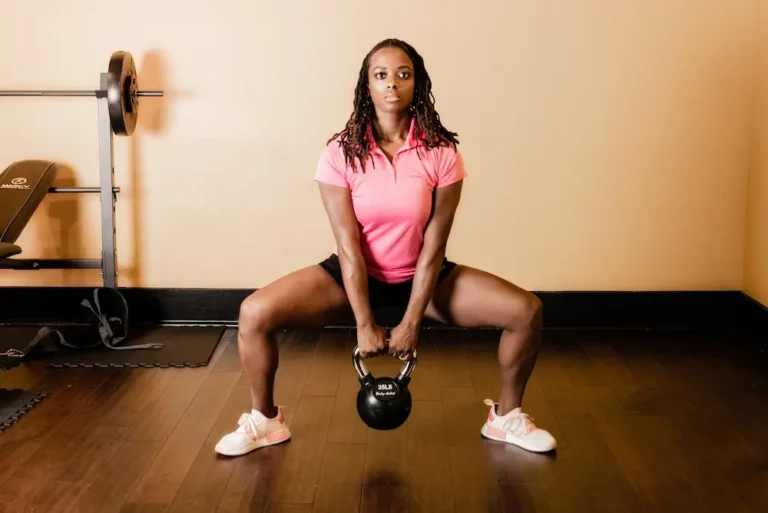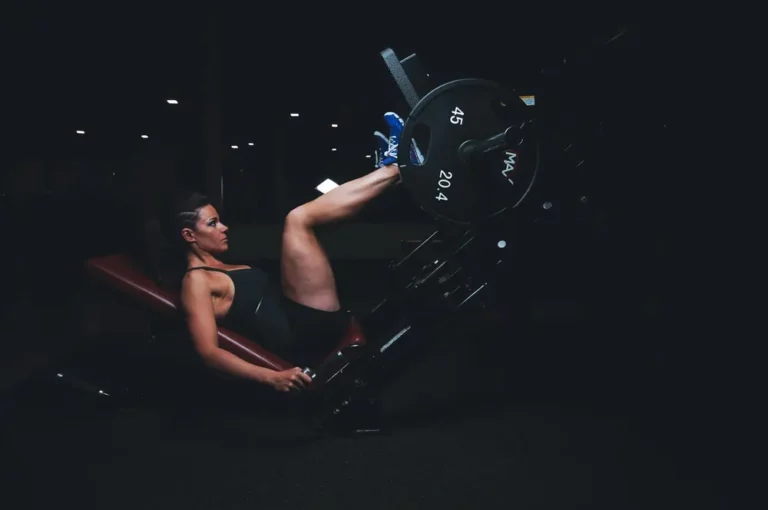Creatine vs Protein: Maximizing Your Workout with Smart Supplementation
When it comes to boosting your workout performance and achieving those muscle gains, the creatine vs protein debate is as old as time. I’ve always been intrigued by how these two supplements stack up against each other. After all, they’re both powerhouse nutrients that play crucial roles in our fitness journeys.
So, I dived into the nitty-gritty to bring you the lowdown on creatine and whey protein. Whether you’re a gym newbie or a seasoned athlete, understanding the difference can be a game-changer for your regimen. Let’s unravel the mystery together and see which one might be the MVP for your fitness goals.
Creatine and Protein: Essential Fitness Allies
When diving into the realm of fitness supplements, I’ve noticed a lot of buzz around two major players: creatine and protein. Both are heralded for their muscle-boosting benefits, but it’s their unique contributions to muscle development and recovery that place them in a league of their own.
Unique Roles in Muscle Development and Recovery
Starting with creatine, I’ve read that it’s all about providing that extra energy boost for your workouts. It’s fascinating to learn that creatine is involved in the rapid energy production needed for high-intensity training sessions. This quick energy boost helps increase overall workout intensity, which in turn can lead to more significant muscle gains over time. Think of it as allowing you to push just a bit harder during each set, squeezing out one or two more reps, or adding a few more pounds to the bar. Creatine also plays a role in cell volumization, pumping more water into muscle cells, which can not only improve muscle recovery but also make muscles appear more full and toned.
On the other hand, protein, specifically whey protein, is crucial for the muscle repair and rebuilding process. After a workout, our muscles are essentially in a state of repair. The amino acids in protein serve as the building blocks for repairing these microtears that occur during strength training. By consuming protein post-workout, I’m providing my body with the necessary nutrients to speed up this repair process, leading to stronger, larger muscles. The process, known as muscle protein synthesis, is the key to muscle growth and recovery.
Complementary Benefits for Athletes and Fitness Enthusiasts
When we talk about combining creatine with protein, we’re looking at a powerhouse duo that can significantly enhance athletic performance and recovery. I’ve discovered that many athletes and fitness enthusiasts include both supplements in their regimen to reap the benefits of each. For instance, creatine’s ability to increase workout intensity and muscle endurance pairs wonderfully with protein’s role in muscle repair and growth.
This combination ensures not only that I’m working out at my maximum potential but also that my recovery is as efficient as possible. The quick energy boosts from creatine can lead to more productive workouts, while protein ensures that I’m adequately fueling my muscle recovery afterward. This symbiotic relationship between creatine and protein can result in more efficient workouts, better results from training, and quicker recovery times, which is essential for anyone looking to improve their fitness levels or athletic performance.
Another point to consider is the effect of this combination on muscle preservation, especially during calorie deficits. While creatine supports muscle endurance and performance, the amino acids from protein help prevent muscle loss when I’m trying to lean down. This means I can retain more muscle mass while focusing on fat loss, ultimately leading to a more toned and defined physique.
The Power of Creatine
When I’m diving deep into the realms of fitness and nutrition, creatine often emerges as a beacon of hope, especially for those aiming to push their limits. It’s not just a supplement; it’s more like a partner in the journey towards achieving explosive power and muscle growth.
Boosting Energy for High-Intensity Workouts
Optimal Timing for Creatine Supplementation
I’ve always found it fascinating how timing plays a crucial role in maximizing the benefits of creatine. It turns out that the best times to take it are either right before or after your workout. This strategy ensures that my muscles are fully saturated with creatine, ready to aid in ATP production during intense sessions and to kickstart the recovery process afterward. On rest days, I stick to taking creatine with a meal to keep those levels consistent.
Creatine Monohydrate: The Preferred Choice
Through my research and personal experience, I’ve discovered that creatine monohydrate stands out among various types of creatine. It’s not only the most researched but also the most cost-effective. This form is well-known for its efficacy in increasing strength and muscle volume, making it my go-to choice.
Understanding Creatine Dosage and Safety
Side Effects and How to Minimize Them
The topic of side effects often crops up when discussing creatine. While it’s generally safe, some people might experience minor issues like bloating or water retention initially. I’ve found that staying well-hydrated and gradually increasing the dosage can significantly minimize or even eliminate these side effects, allowing you to enjoy creatine’s benefits worry-free.
Debunking Common Myths About Creatine
There’s a lot of misinformation out there about creatine, but I’m here to set the record straight. One of the biggest myths is that creatine causes kidney damage. Multiple studies have debunked this, showing that creatine is safe for healthy individuals when used responsibly. Understanding the facts helps me use creatine effectively, ensuring I reap all its benefits without falling prey to baseless fears.
The Muscle Builder: Protein
When we’re talking about building muscle, we can’t skip over the paramount importance of protein. It’s the cornerstone of muscle repair after those tough workouts and plays a critical role in building muscle mass. Let’s dive deeper into why protein is so crucial for anyone looking to improve their physique and strength.
Protein’s Role in Muscle Repair and Growth
Protein is packed with amino acids, the building blocks of muscle tissue. After a heavy lifting session, muscles are essentially broken down. It’s when we rest that they repair and grow, and they need plenty of amino acids to do so effectively. That’s where protein steps in, providing those necessary nutrients to kickstart the muscle-building process.
Whey vs. Casein: Fast and Slow-Digesting Proteins
When looking at protein supplements, whey and casein are the two most talked about. Whey is a fast-digesting protein, making it ideal for post-workout recovery when your body is in dire need of quick nutrition. Casein, on the other hand, digests slowly, providing a steady release of amino acids. This makes it perfect for consuming before bed, ensuring your muscles stay nourished throughout the night.
How Much Protein Do You Really Need?
There’s always a big debate about the right amount of protein. A general rule of thumb is that if you’re looking to build muscle, aim for around 0.7 to 1 gram of protein per pound of body weight daily. However, this amount can vary based on individual metabolism, intensity of workouts, and goals.
Timing Your Protein Intake
Knowing when to consume protein can be as crucial as how much you consume. Proper timing can significantly enhance muscle recovery and growth.
Strategic Protein Consumption for Optimal Benefits
To leverage the muscle-building benefits of protein, consider consuming a protein-rich snack or shake within 30 minutes to an hour after your workout. This window is when your muscles are most receptive to the amino acids needed for repair and growth. Additionally, including protein in every meal throughout the day can help ensure a constant supply of nutrients to your muscles.
Addressing Protein Myths and Facts
There are many myths surrounding protein intake, such as the idea that too much can damage your kidneys or that plant-based proteins are incomplete. The truth is, with a healthy, functioning renal system, high-protein diets are generally safe. As for plant-based proteins, while it’s true that many don’t contain all nine essential amino acids, combining different plant proteins can easily provide a complete amino acid profile.
Creatine vs. Protein: Which One When?
Deciphering Your Supplement Needs Based on Fitness Goals
Deciding between creatine and protein depends largely on my fitness goals. If my focus is on short bursts of power or improving my performance in high-intensity workouts, creatine might be the go-to supplement. It helps in rapidly producing ATP, the energy currency of my cells, allowing me to push harder during workouts. On the other hand, if my goal is muscle recovery and growth, protein becomes essential. It provides my muscles with the amino acids they need to repair and grow stronger following a workout.
For someone aiming to maximize muscle size and strength, paying attention to protein intake is crucial. Research suggests around 0.7 to 1 gram of protein per pound of body weight for muscle building. It not only supports the repair but also the growth of muscle tissue.
Can You Combine Creatine and Protein?
Absolutely, I can take protein and creatine together without worrying about adverse effects. Combining these two supplements can provide the benefits of both muscle growth and enhanced workout performance. Some studies have pointed out that taking creatine and protein together may even enhance muscle growth and recovery more effectively than taking them separately. This combination allows my muscles to recover from the rigors of my workouts with the help of protein, while creatine supports my energy levels during workouts, making each session more effective.
| Supplement | Primary Benefit | Combination Benefit |
|---|---|---|
| Creatine | Boosts exercise performance | Enhanced muscle recovery and growth |
| Protein | Supports muscle repair and growth |
Expert Recommendations on Co-Supplementation
Experts seem to agree that incorporating both creatine and protein into my regimen can offer the best of both worlds: optimal performance during workouts and efficient muscle recovery and growth. Marie Spano, a renowned sports nutritionist, highlights the importance of creatine during rehab phases, suggesting it can help maintain muscle mass even when I’m not actively working out. Meanwhile, protein’s role in supporting muscle repair is well-documented, making it a staple in my recovery process.
Given these expert insights, my approach to supplementation can be strategic, reflecting my specific training phases and goals. Whether I’m aiming to bulk up, enhance my performance, or support my muscles during recovery, a tailored combination of creatine and protein seems to provide a comprehensive solution. Balancing my intake based on my workout intensity and recovery needs ensures that I’m not just following general advice but tailoring my regimen to what my body requires.
Practical Guide to Supplementing with Creatine and Protein
Navigating the world of supplements can be a tad overwhelming. I’ve been there, staring at rows upon rows of tubs and packets, each promising results. But when it comes to enhancing fitness levels, incorporating creatine and protein into your routine can make a significant difference. Here’s a breakdown of how I’ve managed to do just that, making sure I’m getting the most out of both.
Best Practices for Incorporating Creatine and Protein into Your Routine
First off, timing is everything. For creatine, I’ve found adding it to my post-workout shake to be incredibly beneficial. This is because, after a workout, my muscles are like sponges – ready to absorb nutrients. By mixing 3-5 grams of creatine with my shake, I’m ensuring that my muscles are recharged for the next session. On rest days, I keep the momentum by having my creatine with a meal that includes carbohydrates, as this can help with absorption.
Protein, on the other hand, is a bit more versatile regarding timing. I aim for a steady intake throughout the day to ensure my muscles have a constant supply of amino acids. I shoot for around 0.7 to 1 gram of protein per pound of body weight, spread over meals and snacks. After workouts, I make sure to have a protein-rich meal or shake within 30 minutes to kickstart recovery.
Combining both, I’ve noticed a synergistic effect. Creatine boosts my performance in the gym, allowing me to push harder and thereby break down more muscle fibers. Protein then swoops in to repair and grow those fibers, leading to gains in strength and size.
Making Informed Choices: Selecting High-Quality Supplements
Selecting the right supplements can be akin to finding a needle in a haystack. Here’s how I’ve navigated the market to find high-quality creatine and protein supplements:
- Read the label: I always check for any unnecessary fillers or additives. For creatine, monohydrate is the most researched and trusted form. With protein, I look for brands that offer a complete amino acid profile.
- Third-party testing: I opt for products that have been tested by an independent third party. This adds an extra layer of assurance regarding the purity and accuracy of what’s on the label.
- Brand reputation: I do my homework on brands, reading reviews and testimonies. Brands that are transparent about their sourcing and manufacturing processes tend to win my trust.
- Avoiding proprietary blends: These can often obscure the exact amounts of creatine or protein you’re getting. I prefer straightforward labeling that tells me exactly what I’m consuming and how much.
Enhancing Your Fitness Journey with Creatine and Protein
Deciding between creatine and protein isn’t an either/or scenario. It’s about understanding how each plays a unique role in your fitness journey. I’ve shared how timing and quality matter when it comes to supplementing with these powerhouses. Remember, it’s not just what you take but how and when you take it that counts. By focusing on post-workout creatine and consistent protein intake, you’re setting the stage for optimal performance and muscle growth. Always aim for high-quality supplements and stay informed about what you’re putting into your body. Here’s to making every workout count and seeing the results of your hard work pay off!
FAQ – Frequently Asked Questions
What builds more muscle, whey, or creatine?
Creatine provides extra energy for workouts, increasing performance and delaying fatigue, while whey protein aids in muscle protein synthesis, essential for muscle growth. Both play distinct roles in muscle development.
Is creatine good for both bulking and shredding?
Yes, creatine can be beneficial for both bulking up and shredding down. It enhances workout performance, which can be advantageous regardless of whether you’re aiming to gain muscle mass or lose fat.
What are the side effects of creatine?
The most common side effects of creatine include weight gain, dehydration, and gastrointestinal issues. It’s generally considered safe when used as directed, but it’s always advisable to consult with a healthcare provider before starting any new supplement regime.







